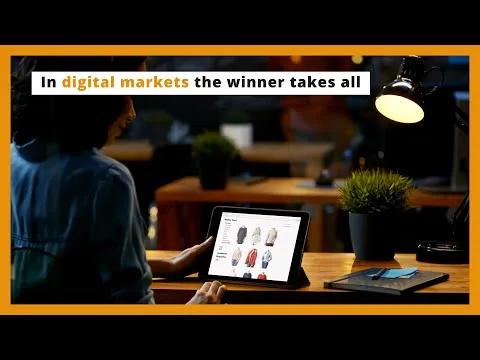
Francesco Decarolis Wants to Preserve Competition in Digital Platforms
If it's common wisdom that digital platforms changed the way we live, it may seem more surprising that they are also challenging all we know about competition and effective antitrust policies. Since people find it convenient to use platforms that are already popular (the so-called network effect), we are not even sure that competition brings lower prices and better quality in such an environment. On the other hand, the very tendency for digital platforms to assume a "winner takes all" form, puts into question whether the forces of free market competition are enough to guarantee that this concentration does not harm consumers and businesses.
Francesco Decarolis, Avvocato Giovanni Agnelli Associate Professor in Economics and a scholar of Economics of Competition, won a €1.7mln European Research Council Consolidator Grant for CoDiM (Competition in Digital Markets), a project that studies the competitive aspects of digital platforms. "My project aims to evaluate regulatory interventions that take into account the features of these markets and the behavioral aspects that affect not-always-rational consumers."
A case of behavioral bias that affects market concentration is online search, where Google is the dominant player. "A traditional antitrust policy," Prof. Decarolis explains, "could have been ordering Google to share its data with competitors. But the European Antitrust thinks that a default bias is at work here, due to the fact that Google has long been the default search engine in Android and iOS smartphones and people tend not to explore alternative options. The Authority decided, thus, to force consumers to actively choose a search engine, presenting four of them when they configure their phones."
Online advertising is a case of new forces that create a competitive equilibrium without public intervention. Google is, again, the dominant player in the market, but while regulators were focused on stimulating competition among platforms, the market shaped a countervailing power in the form of large intermediaries able to buy ads for their customers. "The point here is understanding whether advertisers are benefiting from this evolution or the concentration among intermediaries is creating a double problem for them," says Professor Decarolis.
A third topic addressed by Professor Decarolis' project is the interplay of competition and privacy. In the digital environment, consumers have long acquired products and services seemingly for free, but actually in exchange for their user data. "If until recently consumers seemed relatively unconcerned about the value of their personal data, now some of them are willing to pay a price to preserve their privacy," Prof. Decarolis says. "But any limitation to the use of data in the apps market, for instance, would translate into a price tag for apps that today are free or in ads interrupting and perhaps disrupting the user experience, thus affecting to different degrees consumers with different subjective valuations of their money, their privacy, and their time."
Francesco Decarolis is on his second ERC Grant, having already won an ERC Starting Grant in 2015 for a project on corruption in public procurement. It is however his third major research grant, considering one from the National Science Foundation for a project on competition in insurance markets. A Bocconi graduate in Economics in 2002, Francesco Decarolis obtained his PhD at the University of Chicago, where he studied auction markets with Nobel Laureate Roger Myerson (for the record, in 2020 the Nobel Prize for Economics was awarded again to auctions scholars, Paul Milgrom and Robert Wilson). Auctions are, indeed, a common thread of his research: the project on corruption in public procurement stemmed from the insight that the Italian auction system in public procurement was flawed and fostered collusion and inefficiency; the project on health insurance revolved around the auction-like system that the US Medicare uses to calculate plan subsidies; and, finally, auctions are a widespread mechanism in the digital environment and, indeed, most of the digital ad space is bought and sold via auctions
Preserving Competition in Digital Markets
